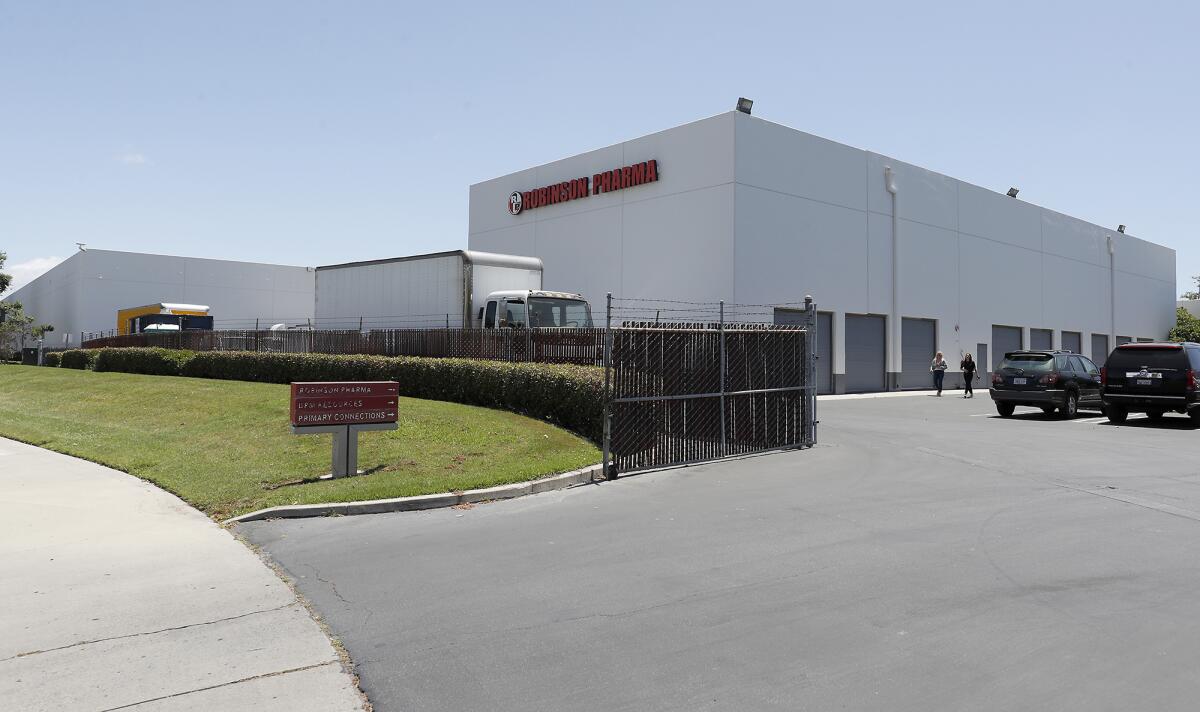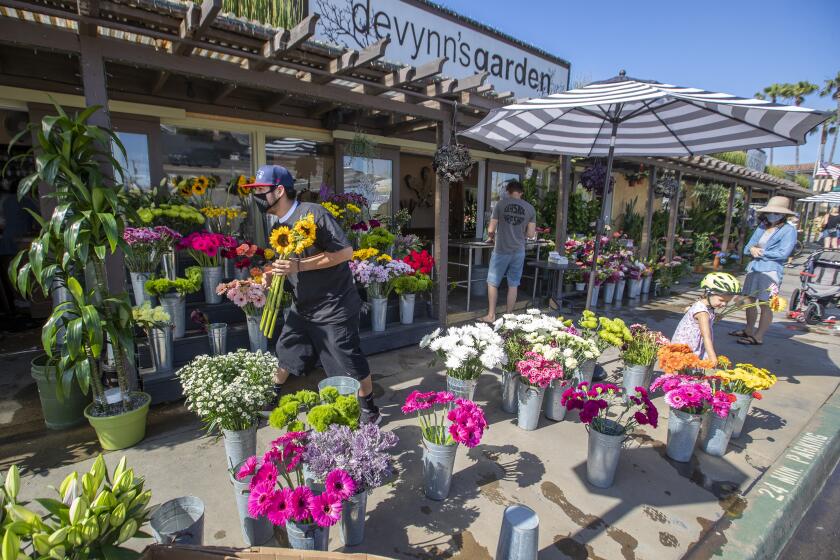Costa Mesa planning commission approves 1,057-unit residential complex north of 405 Freeway
- Share via
Citing future housing needs, Costa Mesa planning commissioners on Monday approved a 15.23-acre mixed use development that would bring 1,057 apartments and some 30,000 square feet of retail and office space to an industrial area north of the 405 Freeway.
Proposed by Beverly Hills developer Rose Equities, One Metro West would include a 1.5-acre public park and bike paths that connect to the Santa Ana River Trail.
For the record:
11:02 a.m. May 14, 2020An earlier version of this story misstated the commission’s vote on recommending the project to the Costa Mesa City Council. The vote was 6-1, with Commissioner Jon Zich opposed. An earlier vote to certify the project’s environmental report was 7-0.
Project leaders say they would designate 106 residential units for low-income tenants and pay the city $6 million for infrastructure improvements, public safety and economic recovery under a 25-year development agreement.
But even with Monday’s green light from the planning commission, One Metro West has many more civic hurdles to clear.
The proposed property, at 1683 Sunflower Ave., is currently home to a 345,000-square-foot industrial building zoned for “industrial park” use.

To accommodate the project, city officials would have to amend Costa Mesa’s general plan and change the land’s zoning designation to “planned development residential, high density.” A specific plan would be developed to guide future build-out of the newly zoned area.
Commissioners, who on Monday continued a public hearing from an April 13 meeting, learned the development would bring a net increase of 6,800 average daily vehicle trips to the area and increase annual carbon dioxide emissions beyond the 3,000 metric ton cap recommended by regional air quality officials, according to city planner Nancy Huynh.
Email [email protected] to sign up for the newsletter featuring the latest news involving Newport Beach, Huntington Beach, Costa Mesa, Laguna Beach, Fountain Valley and other parts of Orange County.
To offset air quality impacts, and given the project’s proximity to the 405 Freeway, each residential unit would house MERV 13 air filters, the kind typically used in hospital surgical settings and smoking lounges.
Huynh also updated the commission on Costa Mesa’s Regional Housing Needs Assessment — a state-level determination that dictates the number of future housing units the city must accommodate in its general plan.
Between 2021 and 2029, the city will have to plan and zone for 11,727 additional units, with about 40% designated for low- and very low-income occupancy. Huynh said substantial land use policy changes would be required for Costa Mesa to comply.
Rose Equities Partner Brent Stoll told commissioners One Metro West would help the city meet those benchmarks in the years ahead.
“This is the right idea in the right neighborhood at the right time,” he said.
Commission Chair Byron de Arakal agreed, saying if the city fails to meet its housing requirements the state could retaliate by allowing multifamily uses in areas currently zoned for single-family residences (designated R-1 in the zoning code).
“We have to do projects like this and start setting aside land north of the freeway … to accommodate this massive RHNA number we’ve been assigned,” he said. “If we don’t plan for it, I guarantee you, Costa Mesa’s R-1 neighborhoods will be toast.”
Commissioner Jon Zich was the lone voice to speak against the project, which he described as a “cluster of aggressive structures that will literally tower over the neighborhood.”
He questioned the city’s enthusiasm for a project that would further increase the imbalance between the number of homeowners and renters, and said he would prefer a scaled-down project that emphasized a nearness to parks and schools, rather than retail options.
“A development in this size of scale should come with over 8.5 acres of park land,” he said. “But, instead, we’re getting a check.”
While Zich voted to certify the project’s environmental impact report, he voted against granting One Metro West the necessary entitlements. With a 6-1 vote, the project moves on to the Costa Mesa City Council, where it is tentatively scheduled to be heard in three public hearings starting June 2.
If approved, the proposal will be placed on the ballot for a vote by city residents in November’s general election.
The vote is mandated under Measure Y, a growth-control initiative that requires public approval of projects seeking general plan amendments or zoning changes, or proposals that would add 40 or more dwelling units or 10,000 or more square feet of commercial space.
Commissioner Kedarious Colbert said he favored letting the voting public weigh in on the project.
“Measure Y is the democratic opportunity for the community to say, ‘Hey, we don’t want this,’ and I think we should give the citizens that opportunity to vote,” he said.
All the latest on Orange County from Orange County.
Get our free TimesOC newsletter.
You may occasionally receive promotional content from the Daily Pilot.





